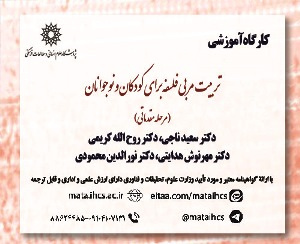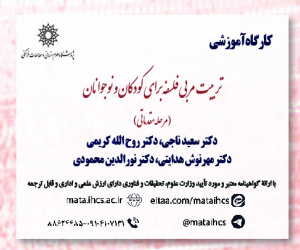تأثیر کیفیت روابط در زنجیره تأمین بر اشتراک دانش و عملکرد نوآوری در صنعت بسته بندی (مقاله علمی وزارت علوم)
درجه علمی: نشریه علمی (وزارت علوم)
آرشیو
چکیده
امروزه با فضای پیچیده و متغیر بازار، فعالیت های نوآورانه دیگر محدود به داخل شرکت ها نیست و نوآوری مشترک بین اعضای زنجیره تأمین اهمیت بسیاری پیداکرده است. ازاین رو، هدف این تحقیق بررسی تأثیر کیفیت روابط در زنجیره تأمین بر روی عملکرد نوآوری به صورت مستقیم و همچنین با توجه به نقش متغیرهای میانجی اشتراک دانش ضمنی و اشتراک دانش صریح است. تحقیق از نظر هدف کاربردی بوده و بر حسب روش تحقیق، همبستگی است که با به کارگیری پرسشنامه ای معتبر و پایا و روش پیمایشی داده های موردنیاز جمع آوری شده است. جامعه آماری تحقیق شامل مدیران صنعت بسته بندی هستند که با توجه به یکنواختی جامعه، روش نمونه گیری ساده تصادفی انتخاب شد. با توجه به حجم نمونه موردنیاز 53 پرسشنامه توزیع گردید. نتایج روایی و پایایی پرسشنامه نیز قابل قبول بود. داده ها با استفاده از نرم افزار SPSS18 تجزیه وتحلیل گردید. تأیید روابط بین متغیر ها و عوامل از طریق تحلیل عاملی تأییدی و تکنیک مدل سازی PLS با استفاده از نرم افزار PLS2 Smart صورت پذیرفته است. یافته ها نشان داد که کیفیت روابط در زنجیره تأمین رابطه مستقیم و مثبت بر اشتراک دانش ضمنی، اشتراک دانش صریح و عملکرد نوآوری داشت. همچنین اشتراک دانش ضمنی و اشتراک دانش صریح بر عملکرد نوآوری تأثیر مستقیم دارند. نقش میانجی متغیرهای اشتراک دانش ضمنی و اشتراک دانش صریح در رابطه بین کیفیت روابط در زنجیره تأمین و عملکرد نوآوری نیز تأیید شد.The Impact of Supply Chain Relationship Quality on Knowledge Sharing and Innovation Performance in the Packaging Industry
Today, with the complex and changing market environment, innovative activities are no longer limited to companies, and joint innovation between supply chain members has become very important. Therefore, the aim of this research is to examine the impact of the quality of relationships in the supply chain on innovation performance directly and also with regard to the role of mediating variables of tacit knowledge sharing and explicit knowledge sharing. The research is applied in terms of purpose and correlation in terms of research method, which was collected by using a valid and reliable questionnaire and survey method. The statistical population of the research includes packaging industry managers, and simple random sampling method was selected due to the uniformity of the community. Considering the required sample size, 53 questionnaires were distributed. The results of the validity and reliability of the questionnaire were also acceptable. The data were analyzed using SPSS18 software. The confirmation of the relationships between variables and factors was done through confirmatory factor analysis and PLS modeling technique using PLS2 Smart software. The findings showed that the quality of relationships in the supply chain had a direct and positive relationship with tacit knowledge sharing, explicit knowledge sharing, and innovation performance. Also, tacit knowledge sharing and explicit knowledge sharing have a direct effect on innovation performance. The mediating role of the variables of tacit knowledge sharing and explicit knowledge sharing in the relationship between the quality of relationships in the supply chain and innovation performance was also confirmed.











